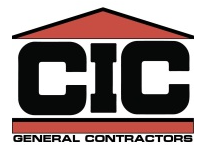A Cost-Effective Renovation Plan Can Help Save The Environment By Reducing Demolition Waste

While Metro Nashville continues its explosive development and economic growth, it is also experiencing a problem: increased pollution. Nearly 38% of the waste sent to landfills comes from construction and demolition materials.
To limit the debris that comes from new construction, more developers are shifting to renovating existing buildings. Commercial Industrial Construction, a regional general contractor that specializes in interior construction, is working to help developers save the environment while saving money through its debris management plan.
“At CIC, we’re being more proactive to help find practical solutions to the demolition pollution problem we’re experiencing in Nashville,” CIC CEO Jon English said. “By finding a new use for materials already present in our existing buildings, we can save money while being environmentally conscious at the same time.”
With Nashville's landfills piling up and the government instituting regulations for controlling construction and demolition waste, properties need major overhauls or updates, English said. In particular, recycling needs to be encouraged to make up for limited landfill space.
CIC suggests clients get in the habit of preserving reusable items during demolitions to reduce waste and avoid the lead times of new items, English said.
“Other cities like Portland, Oregon, and Austin, Texas, have protocols in place where contractors must reuse or recycle construction and demolition debris from affected projects,” he said. “This is no longer a trend but now a requirement for construction projects.”
While Nashville has a construction and debris recycling plan that will be enforced in 2025, CIC has already offered deconstruction services to clients, helping them save money by reusing materials safely and effectively.
English said clients should create a demolition budget at the beginning of the process to avoid excessive collection and disposal fees.
“By having a more proactive demolition strategy, there's a better chance of gaining reusable materials that could offset both deconstruction and waste disposal costs,” English said.
CIC is also working to help keep up with Nashville’s industrial demand. Space is limited, and developers are working to avoid new construction.
Building industrial space vertically isn't a trend yet, but it could be a solution to the high demand for space. English said the company has done this type of work, and it offers a cost-effective alternative to new construction.
He said he hopes “to expand people's imaginations” about the value an interior contractor can add beyond paint and carpet.
A GC’s first step in this process is to discuss the practicality of a project with the building owner and structural engineer. From there, options can be weighed to see what would work best for a client’s budget when engaging an architect, English said.
Clients can save money by building a strong working relationship with contractors, architects and engineers at the beginning of the construction process. Finding the right price is only part of the equation when selecting a contractor for the job because all parties involved need to be in sync, English said.
“Without a strong partnership, it can cause friction when the vision of the architect may not be possible or practical to the contractor, or the architect doesn't want to hear what the contractor suggests,” he said. “As a result, this could lead to adding more billable hours when the architect feels compelled to babysit the contractor.”
Clients need to be more diligent in asking contractors for architect recommendations and vice versa, English said. If the plan is to hire out-of-town architects, the architect should see the project in person before issuing plans.
CIC helps architects during construction by offering 360-degree tours, either of stationary images or videos walking them through the property, to cut travel costs that would be billed back to the client, English said.
CIC has worked on many interior renovation projects with logistics real estate company Prologis. The company also works with other property managers in Nashville that need consistent service for interior work.
“We're working on multiple projects, such as renovating a warehouse to accommodate a client who is consolidating multiple locations, finishing out a newer space for a paper products company and working with a developer to update well-worn flex spaces,” he said.
English said CIC works on all types of commercial buildings and its staff’s extensive experience allows it to be fluid during market shifts. This adaptable and consistent approach has helped the company stay relevant for more than 20 years, he said.
CIC also says that part of its success comes from treating employees well. This is why employees stay with the company for years while continuing to deliver consistent results no matter the product type, English said.
This same strong bond allows CIC to get the best out of client relationships, helping clients understand and navigate different county codes in a variety of markets while connecting them to reliable subcontractors in the area. That can come at a higher cost, but it yields a better result.
“It's a bit like dating: Clients may be attracted to the GC who promises everything for an unbelievable fee,” he said. “However, to obtain long-term relationship success, they need to accept that honesty isn't always going to be easy to hear or come cheap. But it's going to produce the best outcome.”
This article was produced in collaboration between Studio B and Commercial Industrial Construction. Bisnow news staff was not involved in the production of this content.
Studio B is Bisnow’s in-house content and design studio. To learn more about how Studio B can help your team, reach out to studio@bisnow.com.

